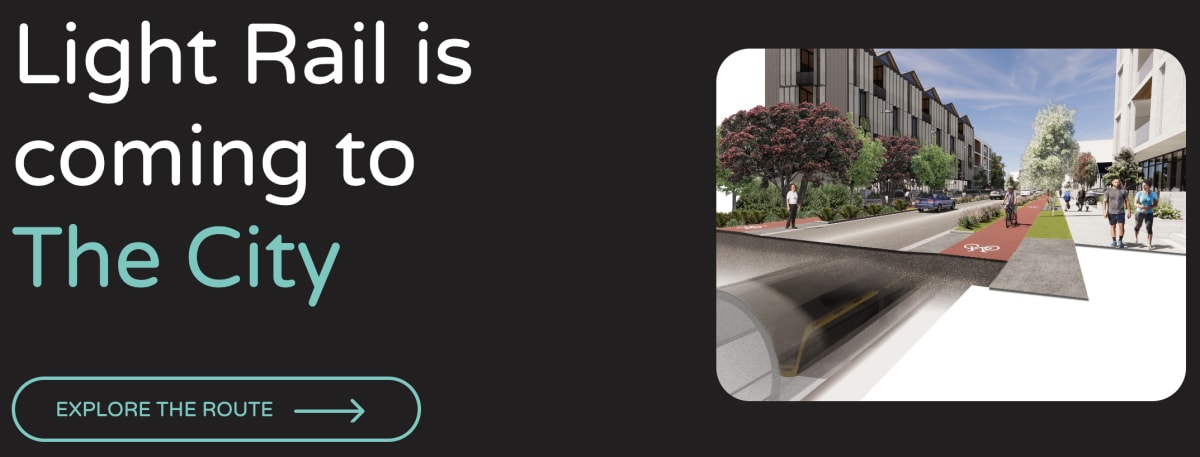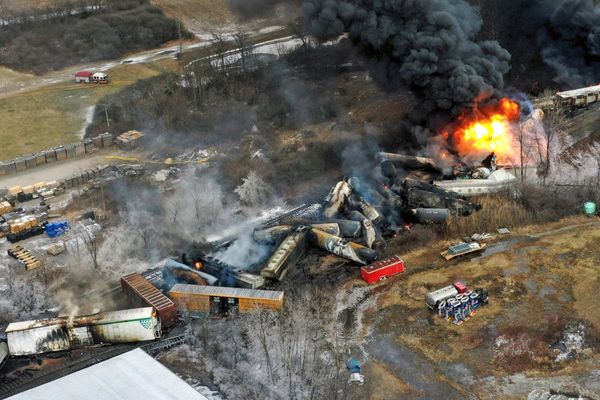
The election results existentially threaten Auckland’s light rail plans – but would a less political approach to transport solutions have struck a healthier compromise?
In what may be the end note of the tormented saga of the unbearable lightness of rail in Auckland, the region's light rail looks to be doomed before even a metre of track was laid down.
Despite the bipartisan agreement that the country’s biggest city needs some big transport solutions fast, the ambitious mass transit system was tied closely to the political fortunes of the Labour Party.
READ MORE:
* Labour's light rail at the end of the tunnel
* National to derail Labour's light rail plans
Last weekend’s red train wreck has likely derailed the city centre to airport route before it even left the station.
Auckland Light Rail Limited chief executive Tommy Parker signalled yesterday that the organisation was ready and waiting to brief the incoming Minister of Transport and looked forward to receiving direction from the government.
That’s an optimistic statement in light of an incoming National-led government. National has made no secret of its disdain for the project, with transport spokesperson Simeon Brown calling it “light fail” and saying he would kill it.
National’s transport promises for Auckland have instead focused on roads and busways, as well as potentially removing Auckland’s regional fuel tax.
But although Auckland Light Rail Limited has yet to start construction, design and consultation work has been underway for six years.
Transport commentator Matt Lowrie said that work was likely to go into the filing cabinet and not be seen again.
“There’s a small chance a surface solution might still happen, and that's only if Wayne Brown really pushed it, but I think that's probably unlikely as well,” he said. “No one's going to want to touch light rail for a while. As we've seen in the past, whether it's heavy rail or light rail, it's often 20 years again before you see it come up again.”
He said it was a frustrating turn of events beginning with Labour’s pursuit of a more expensive tunnelled option, which greatly pushed forward any potential opening date and added zeroes to the price tag.

That in turn increased National’s antipathy for the project – and now it looks like the initial plans have gone from light, to heavy, to nothing.
“It's really frustrating because as I said if the government had just carried on with what the plan was and not gotten distracted by other ideas they would have delivered it by now,” Lowrie said. “That would have been a whole different outcome for Auckland, and probably for Labour, because that would have been something they delivered they could have pointed to that was working well.”
Initial plans for the light rail corridor were discussed in 2015, with arterial routes such as Dominion Road and Sandringham Road seeing something of a return to the 1950s when trams shuttled Aucklanders along them between the suburbs and the city.
Pandemic delays and changes to the brief increased the scope of the project in the ensuing years.
That’s given opposition parties a solid target to swing at – Simeon Brown said the slow-coach project was “emblematic of a Government that doesn't know how to deliver major transport projects”.
But even Labour’s allies have been sceptical of the project. The Green Party has supported light rail, but would rather have seen a surface option.
Co-leader James Shaw told an Infrastructure New Zealand debate that he could get surface light rail delivered in Auckland, Wellington and Christchurch for the same price as the Auckland tunnelled option.
But is there hope for a surface option to rise from the ashes of Labour’s tunnelled plan?
Lowrie suspected that will be the hope of the officials working for the otherwise soon-to-be dismantled Auckland Light Rail Limited.
Auckland Mayor Wayne Brown has also shown enthusiasm for surface light rail and disdain for the expense of tunnels under the isthmus.
He’ll be hoping to have some sway over whichever coalition is formed over the next couple of weeks. He has published an Auckland Manifesto he wants Christopher Luxon and team to agree to which gives “the engine room of New Zealand” more independence.
Much of his desired independence for the region concerns transport.
“Politicians have got into a bad habit of announcing big headline-grabbing mega-projects at election time which are simply too expensive and impractical,” Brown wrote in the manifesto.
“Sometimes they even announce council will be funding them without talking to us. These projects end up costing us millions to plan, only for a new government to come along and replace them with the next one (which invariably has neither the financial support to meet the up-front capital cost or the consequential operating cost).”
Lowrie said the polarising promises of tunnelled light rail had politicised the transport discourse, when 10 or 15 years ago these kinds of decisions might have been made in a more technocratic way with cost-benefit analysis having more weight than winning votes.
“I think we’ve increasingly shifted away from having an independent transport discussion,” he said.
Lowrie said that shift opens the door to pork-barrel politics and “billion-dollar motorways or roads that carry a thousand vehicles a day on it”.
The politicisation of light rail may be just the thing that signed its death warrant. For National to pick it up in any form would constitute quite the u-turn – although historically there's been wriggle room between campaign promises and post-election delivery.
The project's official website still makes big promises: "Light Rail is coming to the city".
It may still be coming, but if Lowrie is right, we might have to wait a generation.







